NCTE eBooks
NCTE Books Program
For more than eighty-five years, the NCTE Books Program has published resources for teachers’ professional development at every level, elementary through college.
NCTE books focus on current issues and problems in teaching, research findings and their application to classrooms, ideas for teaching all aspects of English, and other topics. Purchases through this site are for ebooks only. To purchase print copies of NCTE books, visit the NCTE Store.
Filter :
Publication Date
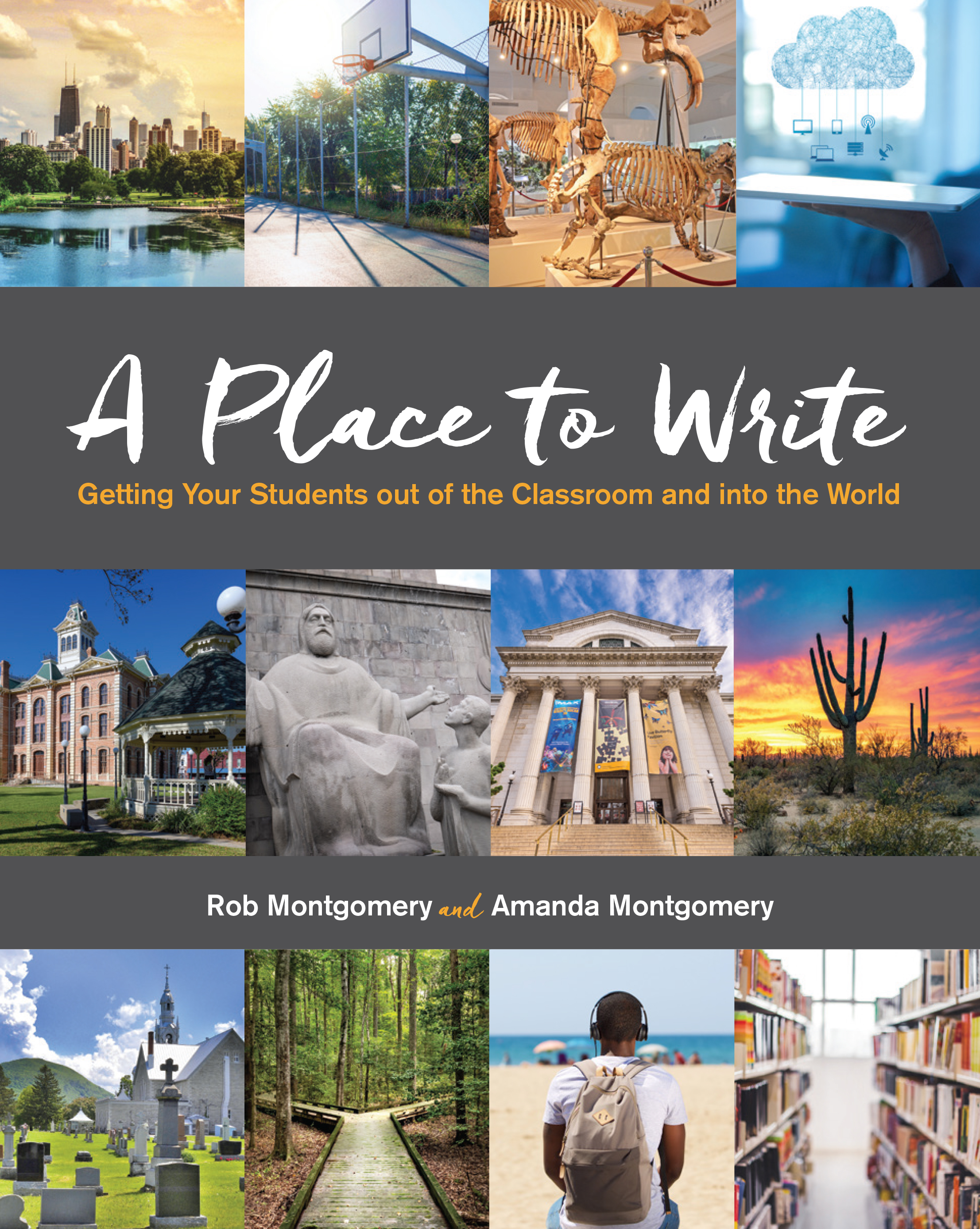
A Place to Write
Getting Your Students out of the Classroom and into the World
Rob and Amanda Montgomery provide practical guidance and activities for K-12 teachers to get students out of the classroom and writing in real-world settings.
A Place to Write provides a comprehensive view of how place-based writing can be incorporated into the K–12 curriculum for a range of often transformative student writing experiences and classroom purposes offering both a rationale for moving students out of the classroom to write in real-world spaces and a how-to guide to help teachers develop their own place-based writing activities. Each chapter explores opportunities for writing in a different real-world setting such as museums schools public places natural places and even virtual places by detailing a range of practical classroom activities in a variety of commonly taught genres.
Each activity is accompanied by considerations for teachers who may want to forge interdisciplinary connections and/or add authentic audiences to their students’ work. Rob and Amanda Montgomery also suggest adaptations and scaffolding for students with special needs and English language learners.
While encouraging environmental advocacy the book also encompasses issues of equity and social justice school safety and culture and identity as well as accessible ideas for teaching common genres such as personal narrative argumentation and authentic forms of inquiry.
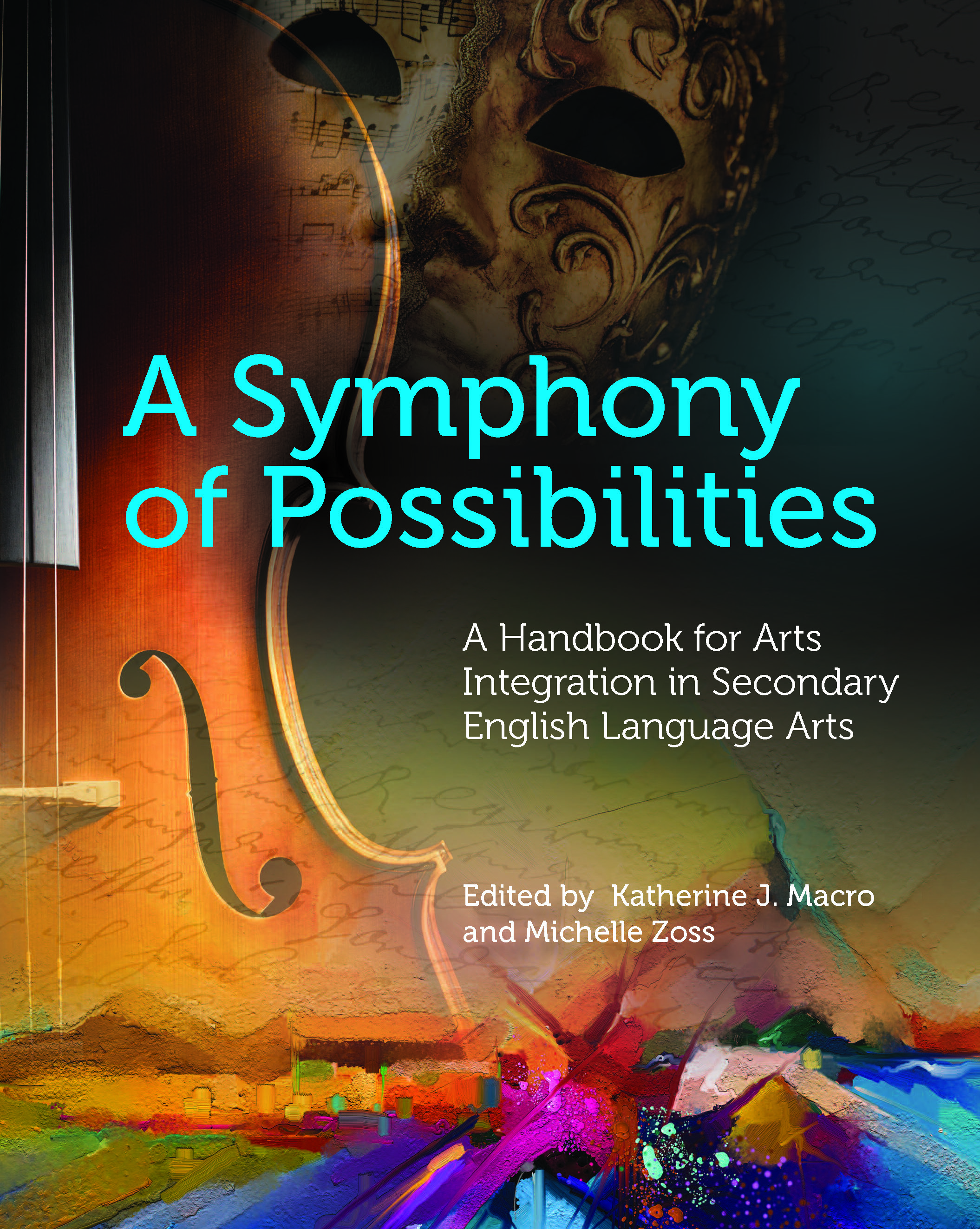
A Symphony of Possibilities
A Handbook for Arts Integration in Secondary English Language Arts

Adolescent Literacy and the Teaching of Reading
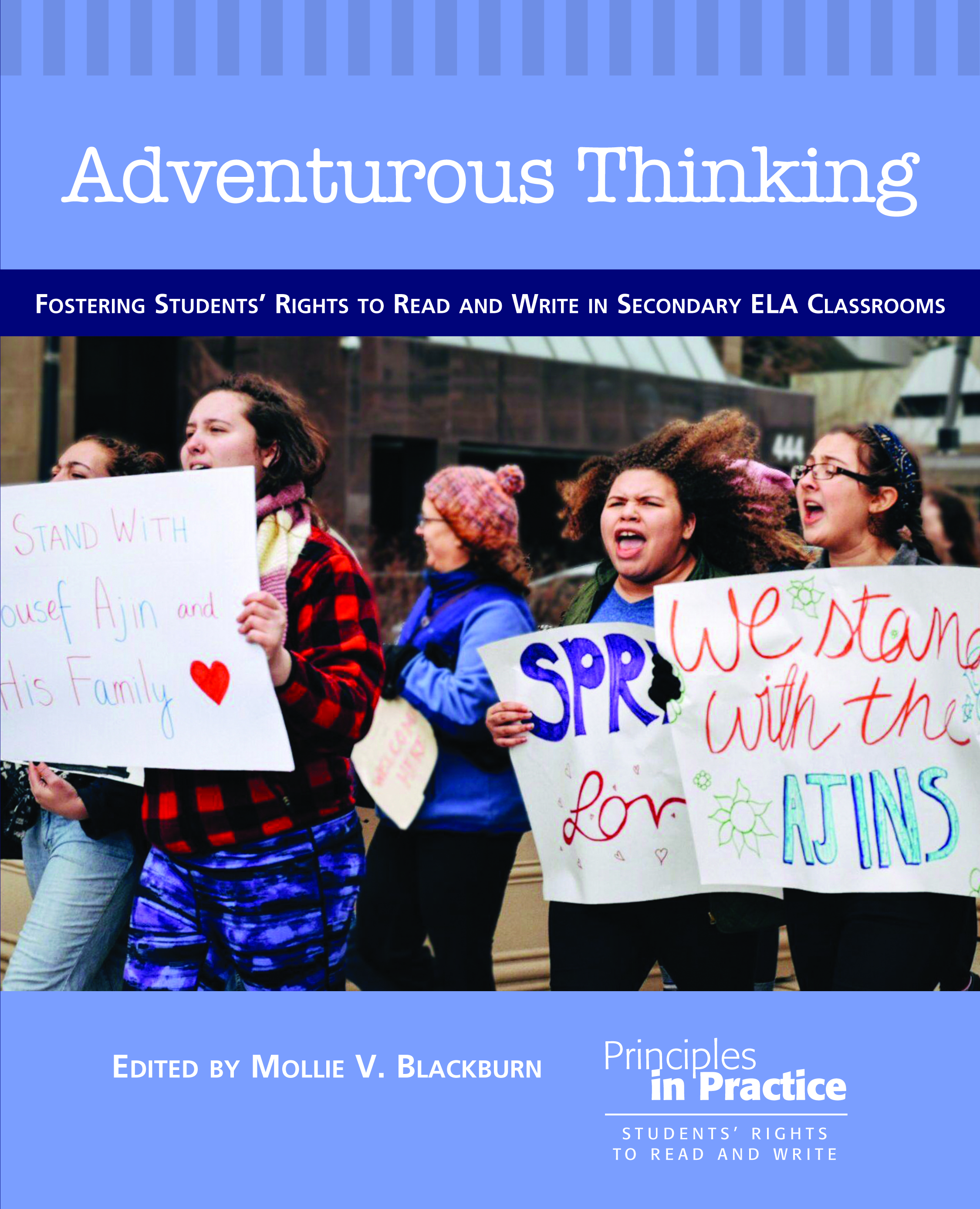
Adventurous Thinking

After Pedagogy
What does it mean to teach after pedagogy? For a long time composition’s pedagogical conversation has been defined by its theoretical disagreements.
Is learning a cognitive process or a social one? Is the self expressed or distributed? Can writing be understood as a process or is any process too messy to be understood? These debates have finally run out of steam argues Paul Lynch leaving composition in a “postpedagogical” moment a moment when the field no longer believes that pedagogical theories can account for the complexities of teaching. After Pedagogy extends the postpedagogical conversation by turning to the experience of teaching itself.
Though the work of John Dewey After Pedagogy argues that experience offers an arena in which theory and practice can coexist. Most important experience can fashion the teachable moments of postpedagogical practice into resources for further growth. “We cannot know what precisely the student will do with what we have offered but we can think with the student about the experience of the offer itself.” By turning what students and teachers know about writing into an area of intellectual inquiry a philosophy of experience can make teaching sustainable after pedagogy.
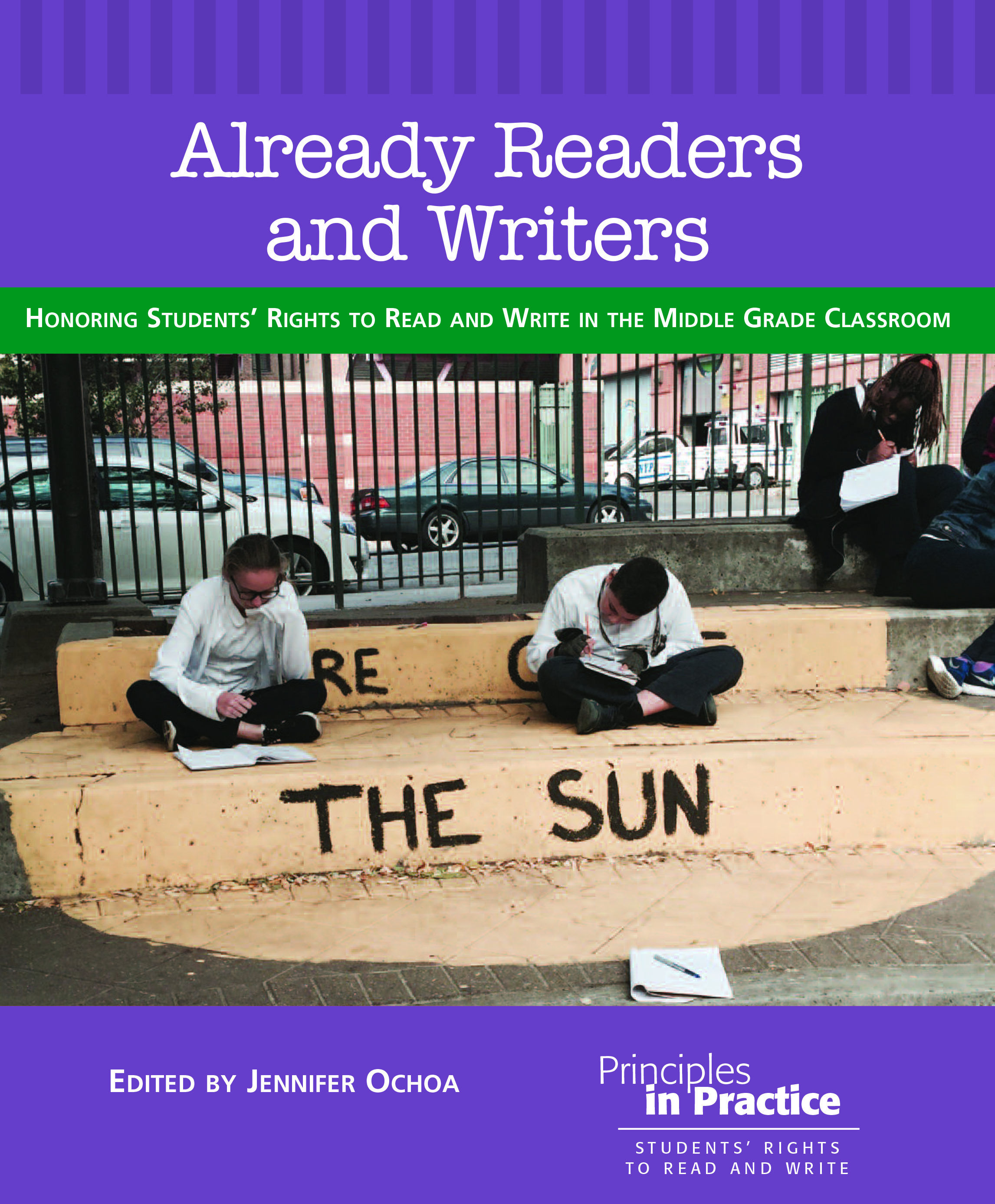
Already Readers and Writers
Honoring Students' Rights to Read and Write in the Middle Grade Classroom
Already Readers and Writers: Honoring Students' Rights to Read and Write in the Middle Grade Classroom is meant to help all middle school educators encourage their students to build literate lives both within the classroom and well beyond it.
Veteran middle school teacher Jennifer Ochoa has brought together middle school teachers and teacher leaders children’s author and We Need Diverse Books cofounder Ellen Oh children’s literature scholar Kristin McIlhagga reading and writing workshop teacher-author Linda Rief and censorship expert Millie Davis to examine current middle school literacy practices that support students’ rights to read and write.
By showcasing their experiences and activities and positioning NCTE policy statements—The Students' Right to Read and NCTE Beliefs about the Students’ Right to Write—as foundational guiding documents Ochoa and her colleagues prove that even in today’s standards-driven environment authentic reading and writing practices can create literacy-rich middle school classrooms.
As a bonus teachers who don’t have strong support in their schools to implement these practices will find a myriad of suggestions for developing a virtual personal learning network—a grassroots professional development tailored to their needs and interests—that will support them in their efforts to help kids as readers and writers.
About Principles in Practice
Books in the Principles in Practice imprint offer teachers concrete illustrations of effective classroom practices based in NCTE research briefs and policy statements.
Each book discusses the research on a specific topic links the research to an NCTE brief or policy statement and then demonstrates how those principles come alive in practice: by showcasing actual classroom practices that demonstrate the policies in action; by talking about research in practical teacher-friendly language; and by offering teachers possibilities for rethinking their own practices in light of the ideas presented in the books.
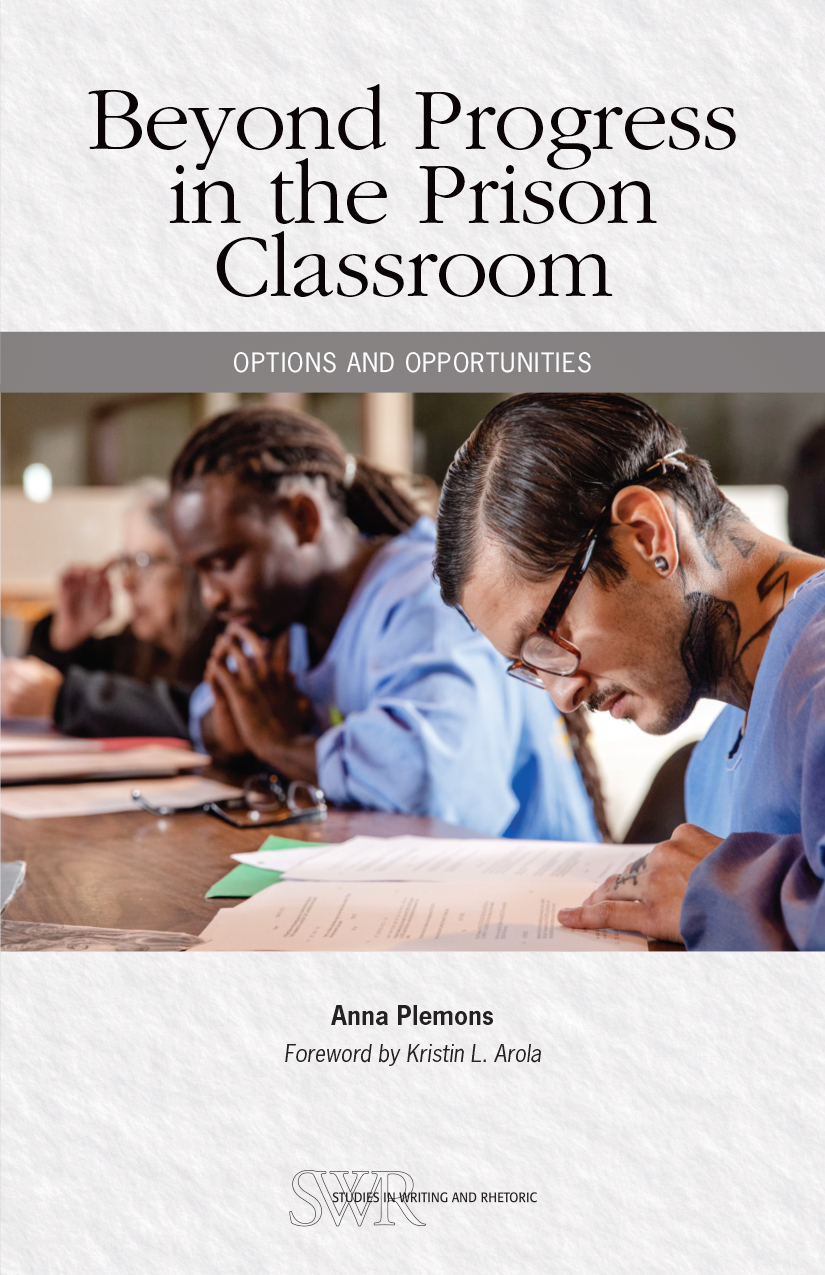
Beyond Progress in the Prison Classroom
Options and Opportunities
Through a mix of history theory and story Anna Plemons explores the fate of the Arts in Corrections (AIC) program at New Folsom Prison in California in order to study prison education in general as well as the disciplinary goals of rhetoric and composition classrooms.
When viewed as a microcosm of the broader enterprise the prison classroom highlights the way that composition and rhetoric as a discipline continues to make use of colonial ways of knowing and being that work against the decolonial intentions of the field. Plemons suggests that a truly decolonial turn in composition cannot be achieved as long as economic logics and rhetorics of individual transformation continue to be the default currency for ascribing value in prison writing programs specifically and in out-of-school writing communities more generally. Indigenous scholarship provides the theoretical basis for Plemons’s proposed intervention in the ways it both pushes back against individualized economic assessments of value and describes design principles for research and pedagogy that are respectful reciprocal and relational.
Beyond Progress in the Prison Classroom includes narrative selections from the author and current and former AIC participants inviting readers into the lives of incarcerated authors and demonstrating the effects of relationality on prison-scholars ultimately upending the misconception that these writers and their teachers exist apart from the web of relations beyond the prison walls. With contributions from incarcerated prison-scholars Ken Blackburn Bryson L. Cole Harry B. Grant Jr. Adam Hinds Hung-Linh "Ronnie" Hoang Andrew Molino Michael L. Owens Wayne Vaka and Martin Williams.
About the CCCC Studies in Writing & Rhetoric (SWR) Series
In this series the methods of studies vary from the critical to historical to linguistic to ethnographic and their authors draw on work in various fields that inform composition—including rhetoric communication education discourse analysis psychology cultural studies and literature. Their focuses are similarly diverse—ranging from individual writers and teachers to classrooms and communities and curricula to analyses of the social political and material contexts of writing and its teaching.
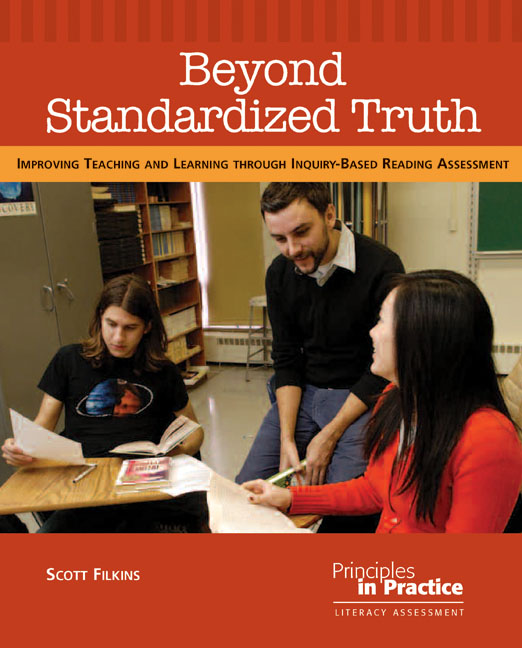
Beyond Standardized Truth
Beyond Standardized Truth included in the Principles in Practice imprint is the result of the author’s own efforts to bridge the gap between valuing reading and being able to respond with appropriate instruction or evaluate growth in reading.
Scott Filkins brings us into his classroom and the classrooms of his colleagues to demonstrate how high school teachers across the disciplines can engage in inquiry-based reading assessment to support student learning. Based in the IRA–NCTE Standards for the Assessment of Reading and Writing Revised Edition the classroom portraits highlight the importance of incorporating genuinely formative assessment into our instruction.
Filkins unpacks his own history with assessment through engaging “confessions” of his early practices and eventual growth toward a framework that situates reading assessment in an inquiry model. Throughout the book he showcases his colleagues’ attempts to use an inquiry framework including the various tools and documentation methods that help them inquire into their students’ habits and thoughts as readers use formative assessment to fuel the gradual release of responsibility framework and use reading assessment as a means of professional reflection.
Finally Filkins challenges us to broaden the conversation about assessment to a wider range of stakeholders and offers a vision of assessment as an expression of care for the students in our charge.
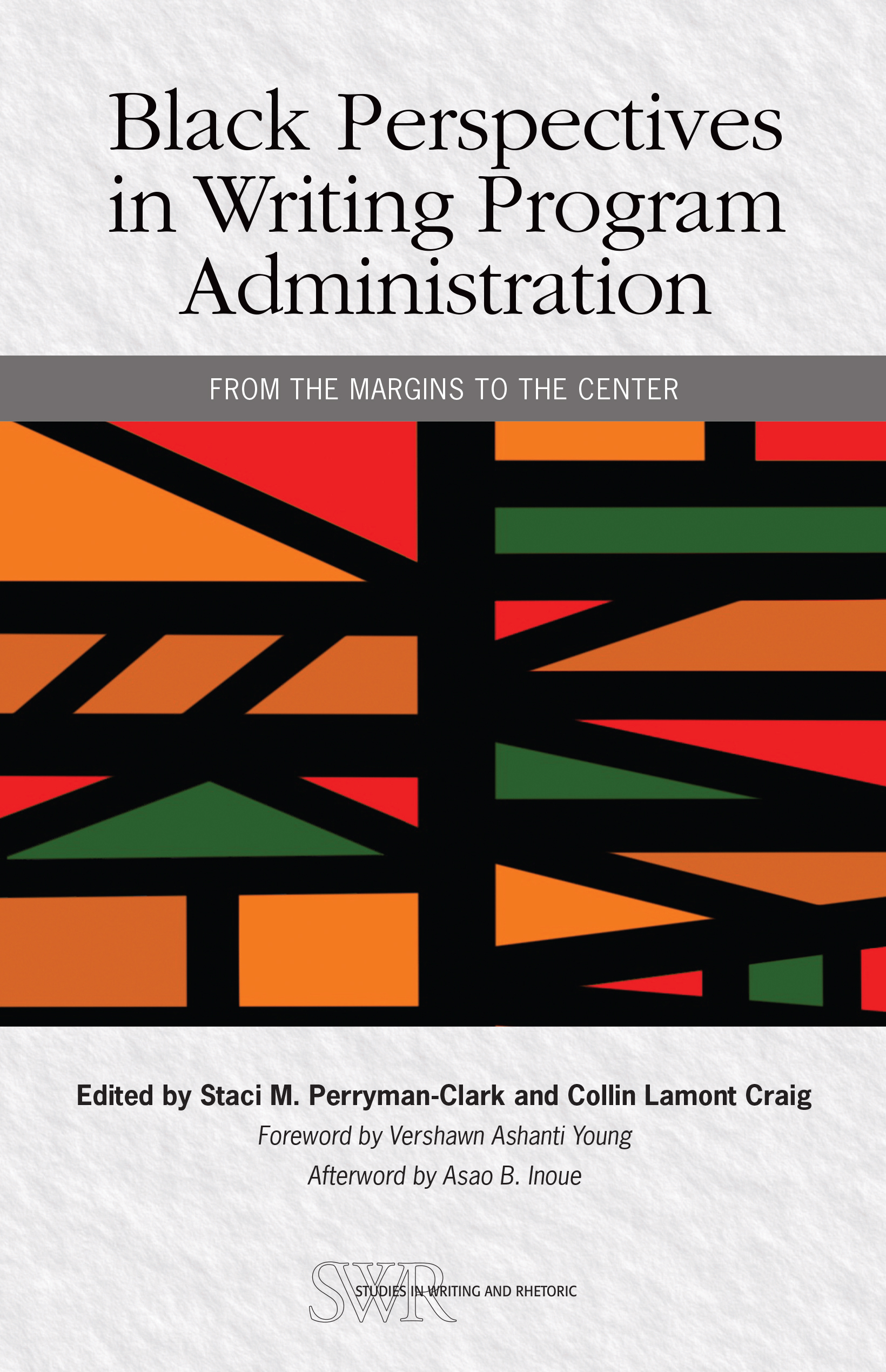
Black Perspectives in Writing Program Administration
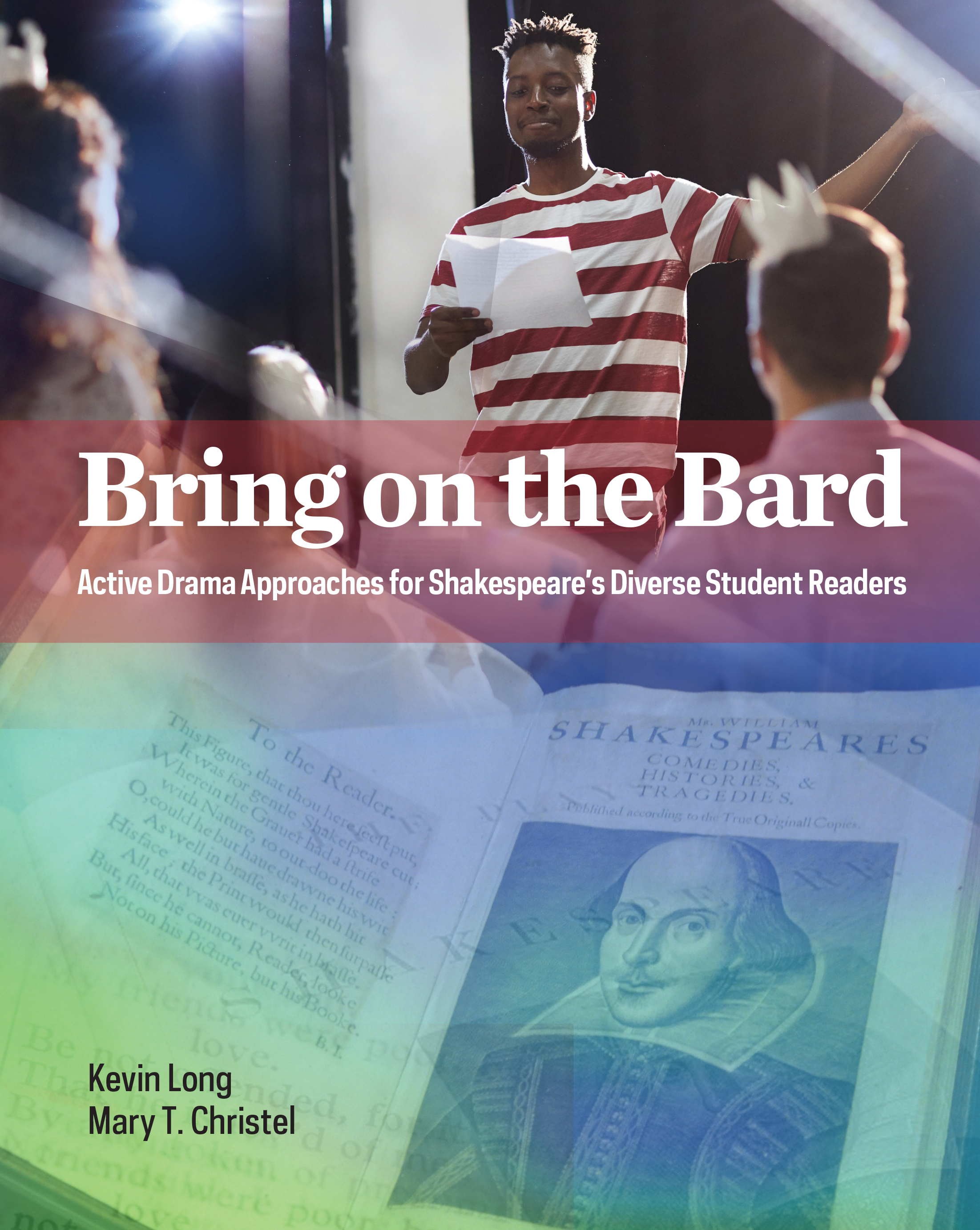
Bring on the Bard
Active Drama Approaches for Shakespeare’s Diverse Student Readers
A deep dive into the rich resources available for teaching Shakespeare’s plays Bring on the Bard is for every high school teacher—early career to veteran—looking for new hands-on activities to draw students of all ability levels into the work and world of Shakespeare.
Shakespeare didn’t write his plays for readers; he wrote individual “cue scripts” for actors who hadn’t read the entire play but had to perform on the fly with almost no rehearsal. Those cue scripts have become the written form of his dramas compiled originally in the First Folio of 1623. And the actors’ cues for meaning emotion and emphasis are still embedded in Shakespeare’s language ripe for discovery by today’s students.
Shakespeare’s plays rightly remain a staple of the ELA curriculum but evolving standards and youth culture itself challenge teachers to put students—not a text—at the center of a reading experience in order to support diverse readers and learners.
How can we do this?
Experienced educators Kevin Long and Mary T. Christel introduce us to the Folio technique which builds on active drama approaches that position students to engage with a rich text through low-risk speaking and improvisation activities. Without requiring students to become actors the Folio technique helps them to discover the clues the Bard built into his works that allow actors to efficiently understand their characters’ text context and subtext. Teachers can use excerpts from the First Folio along with a mass market paperback or digital edition of a play to help students get closer to Shakespeare’s intentions; understand the language action and emotions of the characters; and perhaps even explore the challenges the Bard’s modern editors face.
The book offers suggestions for using parallel text graphic and abridged editions of Shakespeare’s works as well as activities using cue scripts and a variety of viewing experiences.

Building Critical Literacy and Empathy with Graphic Novels
Beginning with the assertion that educators can effectively use comics and graphic novels to develop readers’ critical literacy and empathy DeHart explores the use of graphic novels across grade levels in a wide range of topics and themes. Taking When Stars Are Scattered by Victoria Jamieson and Omar Mohamed as a recurring focal text DeHart argues that critical conversations can be opened up through well-chosen graphic novels. The book features recommended titles insights from graphic novel authors and creators and lesson ideas. Topics include:
- Anti-Bias and Anti-Bullying
- Autobiographical and Biographical Stories
- Gender Representation
- Diverse Abilities
- Black Joy Black Lives Matter and Antiracist Pedagogy
- Stories of (Im)migration and Removal
- Indigenous Peoples/First Nations Stories
- Mental Health and Grief

Can We Talk?
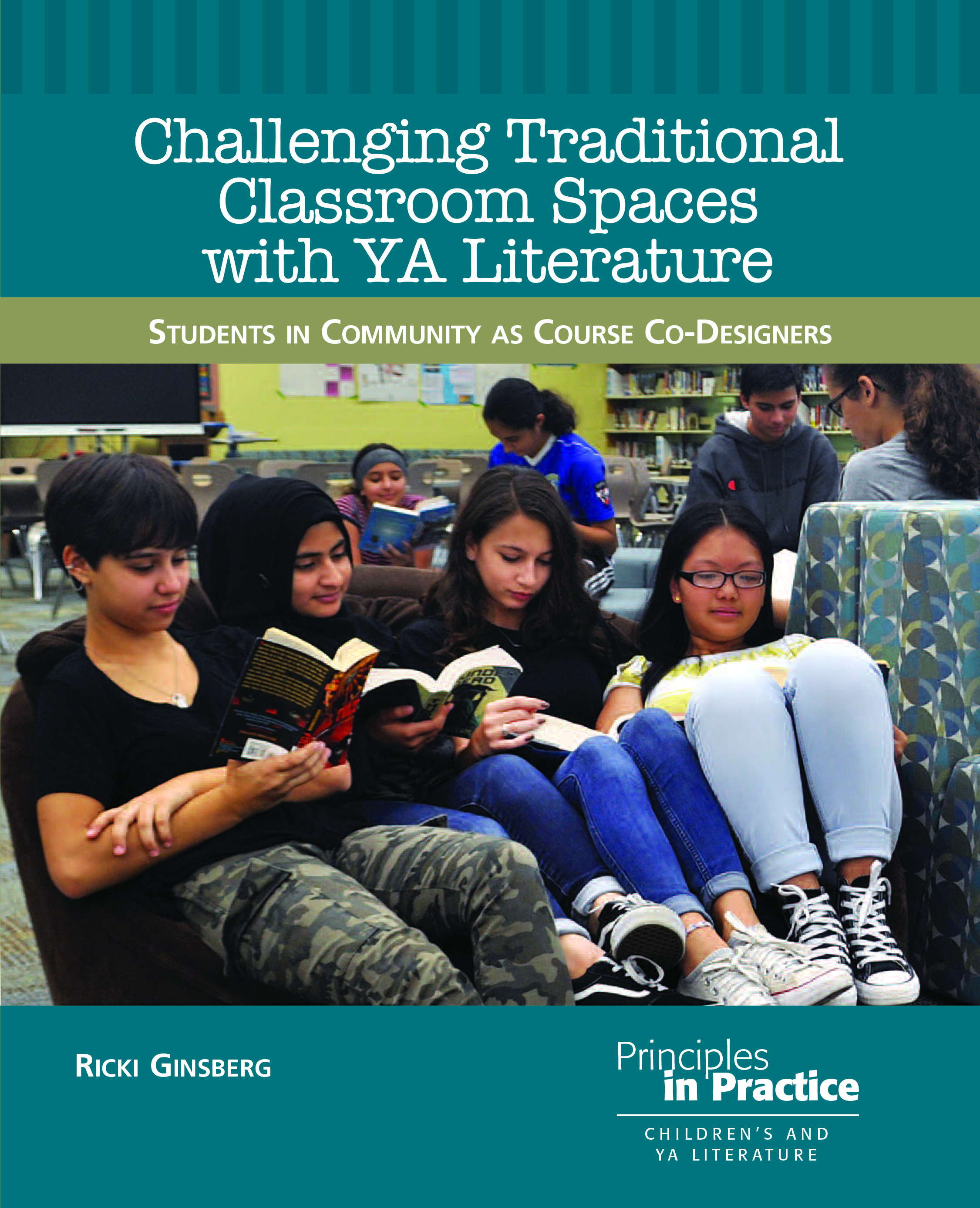
Challenging Traditional Classroom Spaces with Young Adult Literature

Classroom Design for Student Agency
Create Spaces to Empower Young Readers and Writers
Classrooms should be spaces where every child feels safe to bring their whole self to school. This book shows how to set up preK–grade 6 classrooms that support student agency independence and choice. The results of classrooms designed with these goals in mind include:
- Greater student engagement with curriculum
- Students who know themselves and are empowered as learners
- Students who feel valued and care about their learning as well as the learning of others
- A more cohesive authentic and accepting community of learners
- Opportunities for choice and decision-making by all learners
With examples drawn from real classrooms the authors demonstrate how to make choices in seating materials used books read and more. Special attention is paid to the design of classroom libraries in which a variety of diverse quality books anchor so much of the work in helping young readers and writers grow and learn.
The book is richly illustrated with photos and samples to provide an inside look at classrooms in which children are centered and the teacher is responsive to creating spaces with student agency in mind.
172 pp. 2023. Grades PreK–6
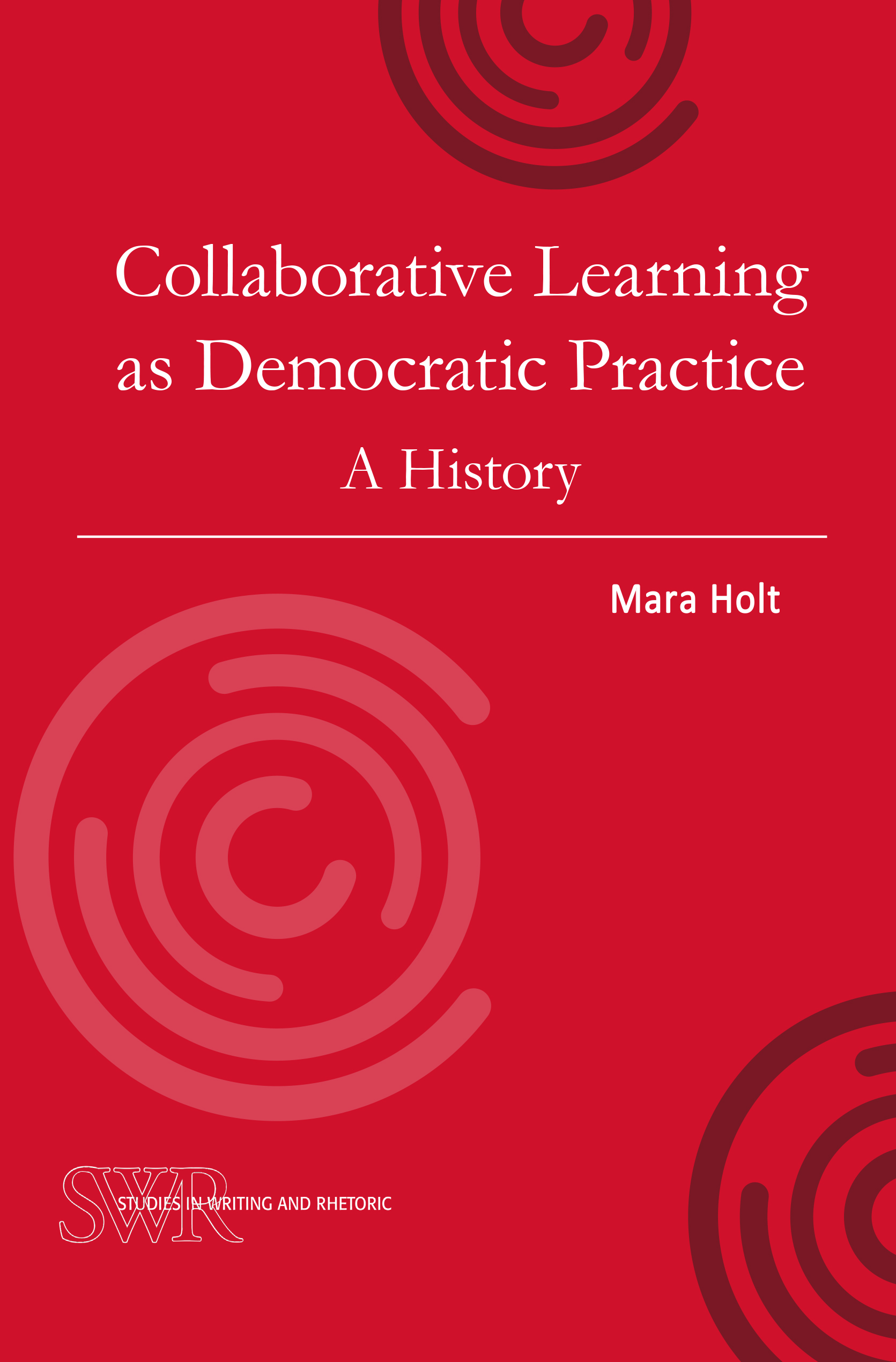
Collaborative Learning as Democratic Practice
Collaborative learning is not only a standard part of writing pedagogy but it is also a part of contemporary culture. Collaborative Learning as Democratic Practice: A History examines the rich historical and political contexts of collaborative learning starting with John Dewey’s impact on progressive education in the early twentieth century.
In the 1930s for instance collaborative practices flourished. In the 1950s they operated in stealth within an ideology suspicious of collaboration. Collaborative pedagogies blossomed in the protests of the 1960s and continued into the 1980s with the social turn in composition theory. Twenty-first-century collaborative practices influenced by pragmatism are found in writing centers feminist pedagogies and computer-mediated instruction. Mara Holt argues that as composition changes with the influence of ecological and posthuman theories there is evidence of a significant pragmatist commitment to evaluating theory by its consequences.
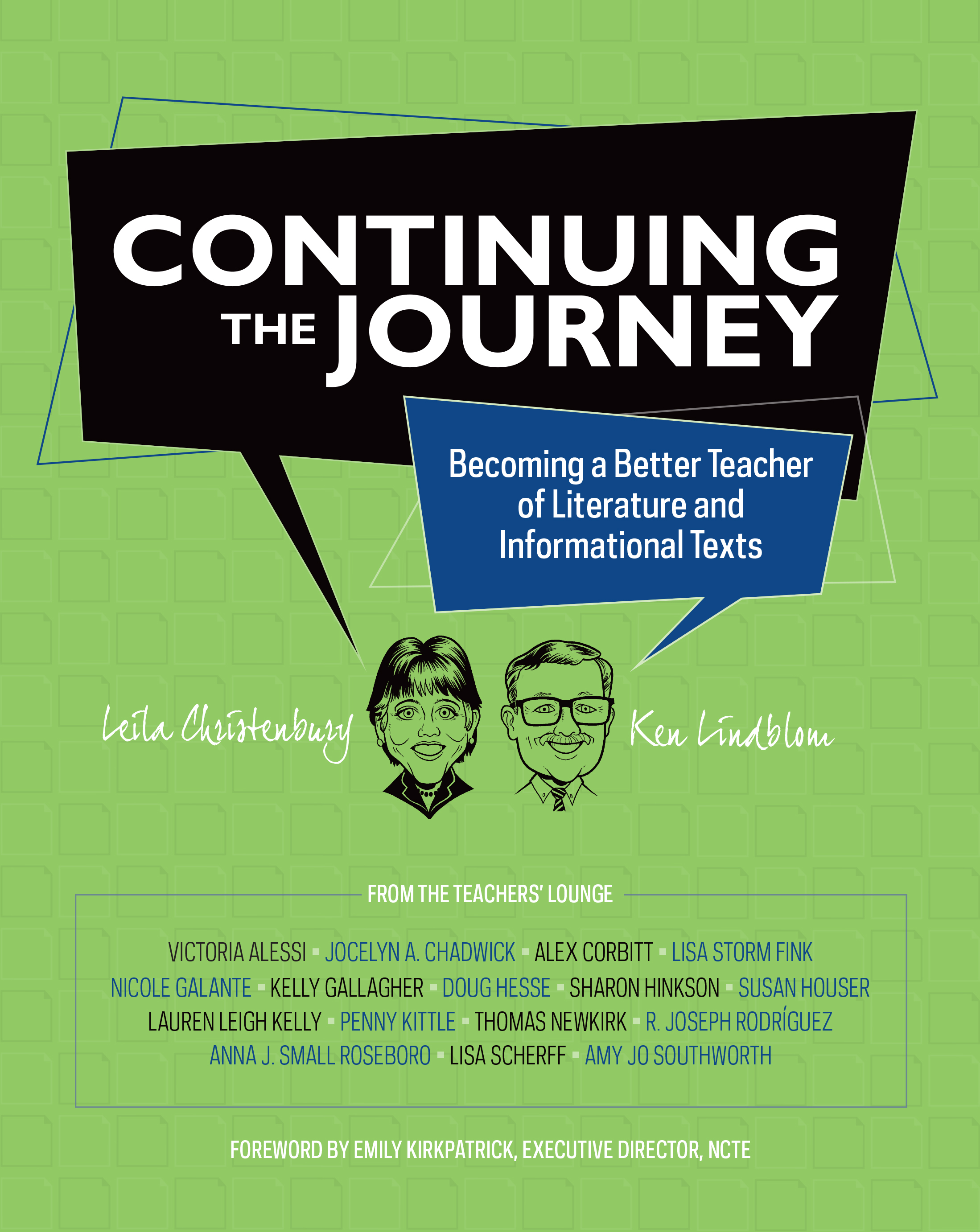
Continuing the Journey
Aimed at accomplished veteran teachers Continuing the Journey offers practical advice encouragement and cutting-edge ideas for today’s English classroom.
Coauthors Leila Christenbury and Ken Lindblom well-known teachers writers and former editors of English Journal are joined in this book by almost two dozen classroom teachers and researchers. Together they present real strategies for real classrooms and offer teachers ideas insights and support. Focused on literature and informational texts this lively book (the first in a series) is a road map to professional renewal and to becoming a better teacher. Topics include:
- Changes in you your classroom and your school
- What it means to be a better teacher
- Teaching literary texts and literary nonfiction
- And incorporating the study of informational texts and of social media in your classroom
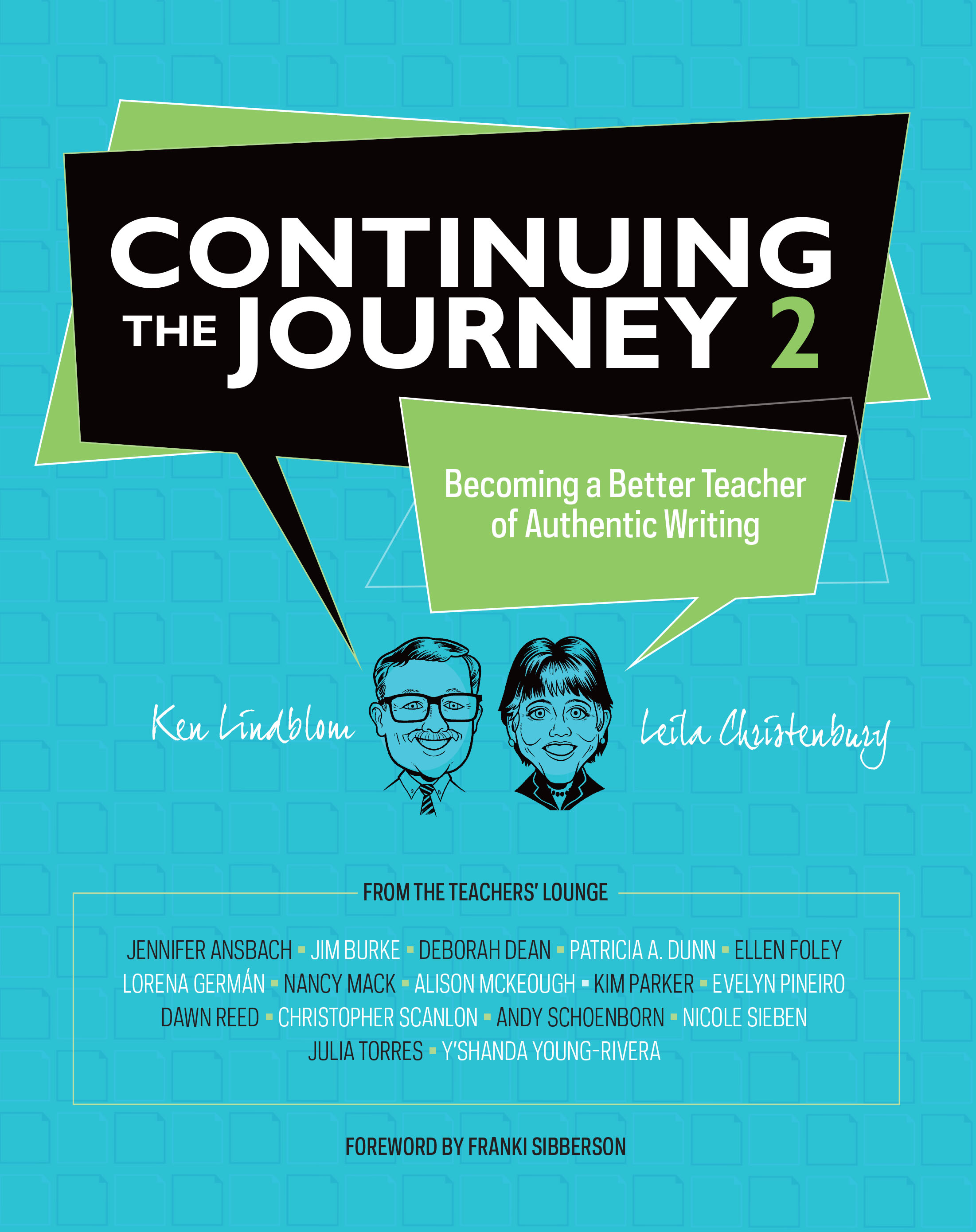
Continuing the Journey 2
Becoming a Better Teacher of Authentic Writing
Ken Lindblom and Leila Christenbury return with the second volume in the Continuing the Journey series this time focusing on authentic writing instruction for middle and high school classrooms.
The authors draw on what research has taught them about writing—concepts deeply rooted in personal identity and real-world experience—and why we must teach writing accurately effectively and fearlessly. As in the previous volume the book includes visits to an ideal Teachers’ Lounge featuring highly experienced colleagues and well-known researchers in English teaching.
Topics covered include:
- Responding to student writing
- Handling the paper load
- Teaching grammar and usage in the context of writing
- Seeking real-world feedback
Although once again focusing on a veteran English teacher audience Lindblom and Christenbury provide a wealth of information advice and resources that will help teachers at any stage of their careers better support their students’ writing both in and out of school.
About Continuing the Journey
Continuing the Journey is a five-book series on advanced approaches to teaching English language arts. Written for veteran teachers by Leila Christenbury and Ken Lindblom the books include “From the Teachers’ Lounge” an innovative feature that honors the expertise of both colleagues from the field and highly regarded scholars. Topics addressed in the series include literature and informational texts; language and writing; listening speaking and presenting; digital literacies; and living the professional life of a veteran teacher.

Continuing the Journey 3
In this third book in the Continuing the Journey series Ken Lindblom and Leila Christenbury explore teaching English language speaking and listening. Aimed at veteran teachers yet accessible to highly capable early career teachers this book offers practical advice encouragement and cutting-edge ideas for today’s English classroom.
Drawing on contemporary and foundational research to infuse classrooms with substance and energy the authors focus on authentic assignments with real-world value.
Topics in this volume include:
- Understanding and teaching language change and attention to culture
- Fostering audience-responsive communication
- Addressing today’s challenges for in-person and technology-enabled speaking
- Encouraging and assessing respectful talk and multimedia communication
- Managing heated conversations
- Grasping why deep listening may be a lost art and how we can recover it.
Packed with classroom-ready approaches provocative ideas encouraging insights as well as the authors’ anecdotes and asides this book will entertain educate and inspire teachers who take seriously the importance of language speaking and listening in today’s dynamic world.
As an added benefit teachers and scholars from across the country add their voices and experiences in the ideal Teachers’ Lounge providing important and diverse perspectives and advice. The Teachers' Lounge contributors:
- Sydney Bryan
- Kelly Byrne Bull
- Tricia Ebarvia
- Christian Z. Goering
- Sharonica Nelson
- Molly S. Potas
- Kia Jane Richmond
- Jana L. Rieck
- Martha Sandven
- Brian Stzabnik
- Peter S. Willis
About Continuing the Journey
Continuing the Journey is a five-book series on advanced approaches to teaching English language arts. Written for veteran teachers by Leila Christenbury and Ken Lindblom the books include “From the Teachers’ Lounge” an innovative feature that honors the expertise of both colleagues from the field and highly regarded scholars. Topics addressed in the series include literature and informational texts; language and writing; listening speaking and presenting; digital literacies; and living the professional life of a veteran teacher.
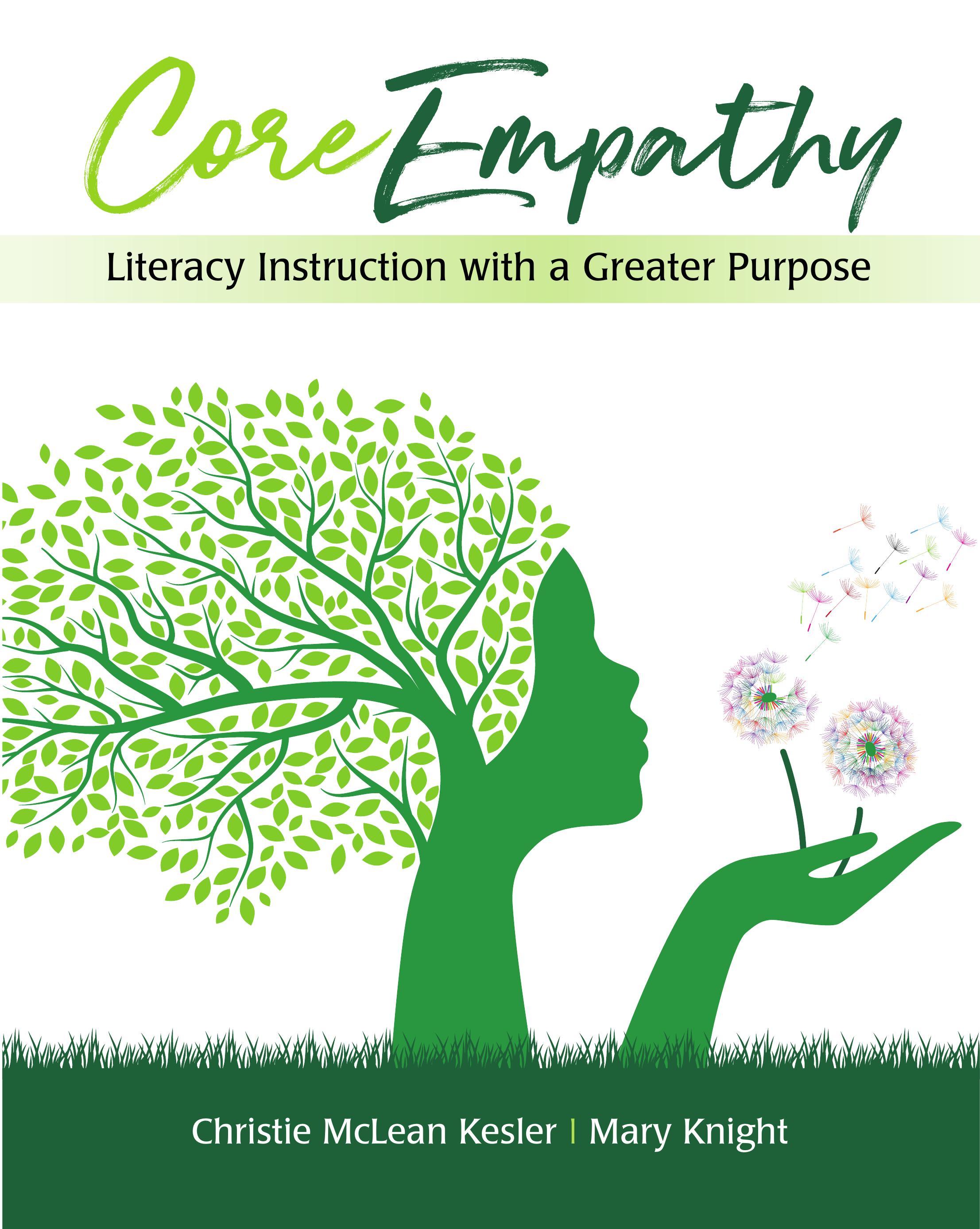
CoreEmpathy
The CoreEmpathy approach and accompanying lessons are designed to cultivate student empathy while simultaneously developing and deepening student literacy skills.
Why should you cultivate empathy in the classroom? Because it not only encourages mutual understanding and caring but also deepens literacy learning. When students walk in the shoes of story characters the practice extends thoughtfulness to the real people in their lives.
The CoreEmpathy approach developed by literacy specialist Christie McLean Kesler and children’s author Mary Knight turns an empathy lens on the reading and writing essential to all K–6 classrooms optimizing the connection between them. And rather than being one more thing you need to do CoreEmpathy interweaves with classroom practices already in play applicable to the stories the authors highlight as well as to student favorites.
Transform your literacy classroom with:
- A simple step-by-step approach to choosing and using already loved books from your current literacy curriculum
- The why what and how of teaching literacy through an empathy lens
- Plentiful examples from real-world classrooms including the voices of teachers and students as they engage with story the CoreEmpathy way
- Practical tips for using the approach with established classroom practices
- Easy-to-use K-6 integrated reading and writing lessons
- Vast resources for extending your empathy-rich knowledge and practice
- Inspiration for you to live teaching’s greater purpose now
With its heart in the joy that stories bring to readers of all ages CoreEmpathy reinvigorates teaching and learning with effects that last long past the elementary years.
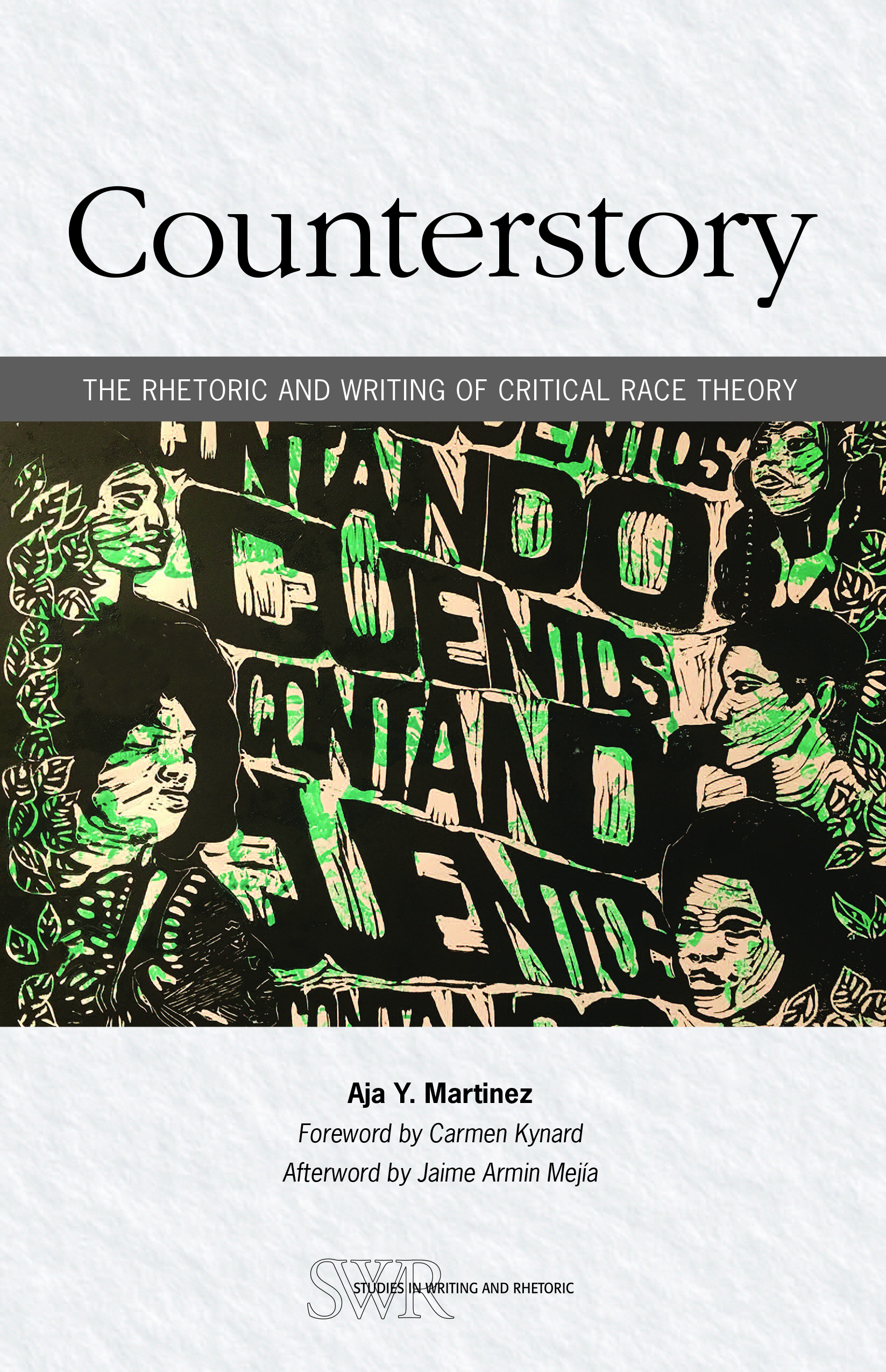
Counterstory
The Rhetoric and Writing of Critical Race Theory
Named one of the 20 Best New Rhetoric Books to Read in 2021 by BookAuthority
Winner of the 2021 Vision Award from the Coalition for Community Writing
Humanities scholar Aja Y. Martinez makes a compelling case for counterstory as methodology in rhetoric and writing studies through the well-established framework of critical race theory (CRT) reviewing first the counterstory work of Richard Delgado Derrick Bell and Patricia J. Williams whom she terms counterstory exemplars. Delgado Bell and Williams foundational critical race theorists working in the respective counterstory genres of narrated dialogue fantasy/allegory and autobiography have set precedent for others who would research and compose with this method.
Arguing that counterstory provides opportunities for marginalized voices to contribute to conversations about dominant ideology Martinez applies racial and feminist rhetorical criticism to the rich histories and theories established through counterstory genres all the while demonstrating how CRT theories and methods can inform teaching research and writing/publishing of counterstory.
About the CCCC Studies in Writing & Rhetoric (SWR) Series
In this series the methods of studies vary from the critical to historical to linguistic to ethnographic and their authors draw on work in various fields that inform composition—including rhetoric communication education discourse analysis psychology cultural studies and literature. Their focuses are similarly diverse—ranging from individual writers and teachers to classrooms and communities and curricula to analyses of the social political and material contexts of writing and its teaching.
